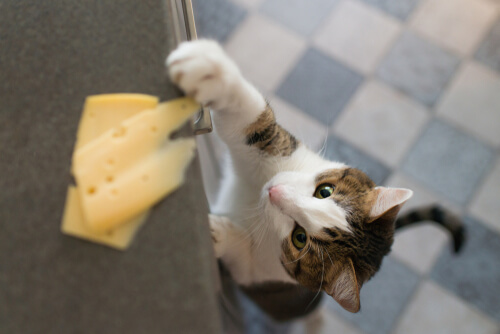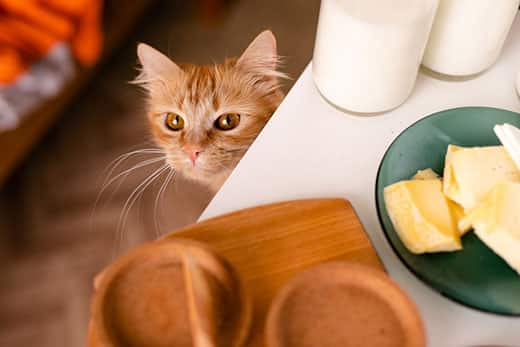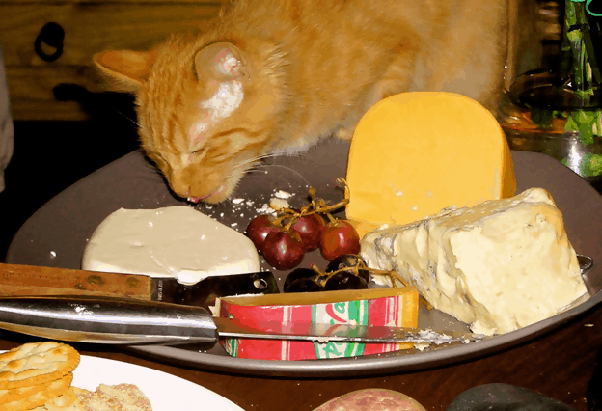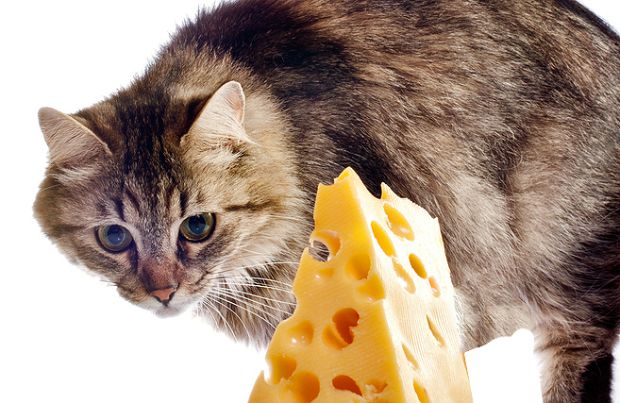As everyone knows, mozzarella cheese is not a natural food for cats but that does not stop them from wanting a bite. Cats are naturally carnivores and they have no real need for mozzarella cheese. Meat-eaters need protein, and mozzarella is a poor choice in which to find protein. All cheese has in it is milk, fat, and cream and for many cats, this is not good, especially if they are lactose intolerant. Now that we have established that cats do not need mozzarella cheese, can they have a little bit if they want it? The answer is yes, but in moderation. If the mozzarella cheese has other ingredients in it check with your vet or online to see if that ingredient is harmful to them.
How to feed your cat mozzarella cheese

Because most cats are lactose intolerant, you should start with a small piece to see how they handle it. Adult cats lack the enzyme lactase in their stomach to break down the lactose found in mozzarella cheese safely. Eating too many dairy products, including mozzarella cheese can cause diarrhea and stomach upset. If your cat seems to like mozzarella cheese, try to find some that are low in lactose. You could even try yogurt or sour cream because these are easier to digest.
Is cheese OK for kittens?
![]()
Most young kittens enjoy a nibble of cheese but again, do it in moderation. When they are small kittens they do not have a problem with lactose intolerance but after weaning they do become lactose intolerant. The reason is that kittens produce the enzyme lactase that breaks down lactose and as long as they are consuming milk, such as from their mother, they will continue to produce this enzyme in their digestive system. Once they stop drinking milk and start eating solid food, the enzyme production will stop. Once the production of enzymes is stopped, they will never start producing the enzyme again.
Benefits
Although this might not be considered a benefit, some pet owners who have cats that like cheese will use cheese as a way to give their cats a pill if they need medication. It is also a tasty treat for them. mozzarella cheese is a good source of vitamin B12 and calcium and just a tiny bit of protein.
Reasons to not give mozzarella cheese to cats

Besides being lactose intolerance, there are other reasons not to give your cat cheese
- Fat content—cheese is high in fat and if a cat eats too much fat it can cause health problems like heart disease, obesity, diabetes, and more.
- Salt content—many types of cheese are high in salt. When a cat has too much salt in its system, it can increase its thirst and urination that is abnormal. Over a long period of time, too much salt can lead to high blood pressure and kidney problems.
- It can cause them to gain weight and this can lead to arthritis.
What happens when a cat eats mozzarella cheese?

When a cat eats cheese, the lactose is ingested but not broken down, the enzyme lactase continues through the cat’s intestinal system. It is not digested. When water is drawn into their intestines, it causes bacteria to ferment the milk sugars (lactose) that are undigested. In 8-12 hours you may see symptoms of lactose intolerance in the form of discomfort, gas, and diarrhea.
Types of mozzarella cheese to eat
If your cat wants mozzarella cheese, you should try to feed them cheese made with goat’s milk as it is easier for them to digest this type of mozzarella cheese. Cheeses that you feed your cat should be low in lactose and low in salt content.
- Cottage cheese
- Parmesan cheese
- Cheddar cheese
- Cream cheese
- String cheese
- Feta cheese
- Swiss
- Cheeses made from almond or soy milk
Types of mozzarella cheese to avoid
- Blue mozzarella cheese
- Rich mozzarella cheese will most likely upset your cat. Stick with simple mozzarella cheeses.
- Cheeses that are flavored with onion, garlic, or onion/garlic powders. These can cause severe problems. They are both toxic to cats and if they regularly ingest them it can cause red blood cell damage that can be life-threatening. A cat does not have the enzyme to digest onions correctly so it can cause gas, diarrhea, severe gastrointestinal distress, or vomiting
In conclusion
If your cat loves the taste of mozzarella cheese but has problems digesting it, there are some cat food brands that use mozzarella cheese in their foods as a flavorsome addition. These have a low level of lactose because of the other ingredients so this is a way for your cat to enjoy mozzarella cheese without having the issues they might have with cheese.
If you are using mozzarella cheese to hide medicine from your cat make sure you check with your vet to see if they can have mozzarella cheese while that particular brand or type of medication. There are some medications in which your cat should not be eating medicine.
Any snack, mozzarella cheese included, should not be more than ten percent of their overall diet. If it is more than this, a cat will have a diet that is not nutritionally complete and will most likely gain weight but is not good. Being overweight is just going to cause more health issues. If you have given your cat cheese when it was a kitten and when it becomes an adult you continue to give them small bits of mozzarella cheese, they will have the ability to be more tolerant of the lactose in cheese.
While it is okay to give your cat mozzarella cheese in moderation there are some that feel that cats should not be given mozzarella cheese, even as a special treat. Their reasoning is that it offers nothing nutritionally for the cat except for some calcium and vitamin B12. They also say that giving the cat will make him gain weight. It is up to the owner to decide if they want to give their cat a piece of mozzarella cheese but watch to make sure that it is not upsetting their stomach.
